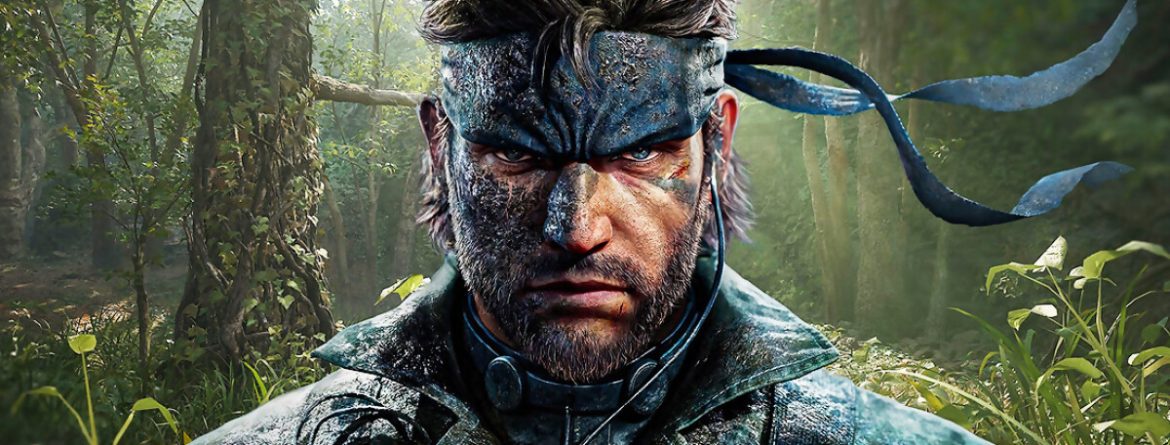Key Takeaways
Created with AI - we're still experimenting, so apologies if it misses the mark
- Konami has returned to the video game revival industry with Metal Gear Solid 3: Snake Eater remake, developed by Virtuos.
- Unlike the Silent Hill 2 remake, the Snake Eater remake preserves Hideo Kojimas original vision and gameplay.
- The remake features significant graphical improvements, updated camera system, and a few minor changes in voice acting and soundtrack.
- By maintaining the original gameplay and classic style, the remake aims to highlight the blend of interactive gameplay and cinematic storytelling that resonated with audiences back in 2004.
Metal Gear Solid 3 Snake Eater Remake by Virtuos vs. Original Vision
After nearly a decade away from classic video game revivals, Konami has reportedly re-entered the industry with a significant presence. Less than a year after the successful Silent Hill 2 remake, the company is delivering another major revival: Metal Gear Solid 3: Snake Eater, a title many gamers consider a legend. For Silent Hill 2, Polish developer Bloober Team received extensive freedom to overhaul both graphics and gameplay. However, for Metal Gear Solid Delta: Snake Eater, Singapore-based Virtuos handled the update, and Konami did not approve modifications to the original gameplay, including Hideo Kojima’s distinctive staging.
Remix or Overhaul? The Evolution of Snake Eater’s Vision in the Upcoming Remake
Hideo Kojima, renowned for his immersive game design, was historically deeply involved in every aspect of his titles. He frequently listed his name in credits, reflecting his comprehensive control over elements ranging from game design and cinematic scenes to character direction, trailer editing, and even dialogue. The press often celebrated him as a “video game rockstar” for this hands-on approach. While Kojima has since diversified his creative pursuits, his earlier work, particularly Metal Gear Solid 3: Snake Eater in 2004, brilliantly blended interactive gameplay with cinematic storytelling. The upcoming remake, by preserving his original vision, will highlight how that particular blend resonates with a contemporary audience. Is This a True Remix or Just an Overhaul?
Preserving Kojima’s Legacy: A Faithful Reboot of Metal Gear Solid Delta: Snake Eater
Metal Gear Solid Delta: Snake Eater, developed by Virtuos, aims to faithfully reproduce the PlayStation 2 classic. Konami’s decision to maintain the original gameplay and Kojima’s classic style, rather than allowing significant updates like those seen in the Silent Hill 2 remake, is a deliberate choice. This approach suggests Konami’s intent to preserve the game’s distinctive charm, even if some elements might now feel dated to a modern audience. Given Kojima’s current focus on narrative in his more recent projects, this commitment to the original core gameplay could be particularly notable for fans expecting a traditional experience. Developers meticulously preserved the original camera angles, pacing, story, cutscenes, and voice acting. While some might find this conservative, the decision reflects a cautious approach to maintaining the unique blend of seriousness and absurdity inherent in Kojima’s original work. The developers opted for caution, choosing not to risk altering the original’s carefully constructed experience, despite opportunities to introduce new elements.
Enhanced Graphics and Camera System: A Fresh Coat on Classic Metal Gear Solid Delta: Snake Eater
The game features significant graphical improvements and an updated camera system, providing a fresh coat of paint immediately noticeable upon launch. However, the core gameplay largely mirrors its 2004 PlayStation 2 counterpart. While visual fidelity is enhanced, the underlying mechanics remain consistent, with all cutscenes reproduced shot-for-shot from the original. The voice acting is identical, though presented with improved sound quality and a few new lines for control explanations. Similarly, the soundtrack largely features the original compositions, with the notable exception of the theme song “Snake Eater,” which Cynthia Harrell has re-recorded with a subtle rhythmic variation. Aside from these specific updates, the game otherwise offers a very familiar experience.
| Specification | |
|---|---|
| Official Name | Metal Gear Solid 3: Snake Eater - Limited Metal Edition |
| Brief Summary | This is the steelbook version of Metal Gear Solid 3: Snake Eater, official titled Limited Metal Edition. This version of the game is not particularly common, possibly because there is no difference between this and the original release apart for the metal case. |
| Platforms | PlayStation 2 |
| Released | December 17, 2004 |
| Genre | Shooter, Tactical, Adventure |
| Play Modes | Single player |
| Content Rating | M |
| Languages | English |
| Genre | Konami Digital Entertainment |
| Genre | Konami Digital Entertainment |
Have any thoughts?
Share your reaction or leave a quick response — we’d love to hear what you think!
